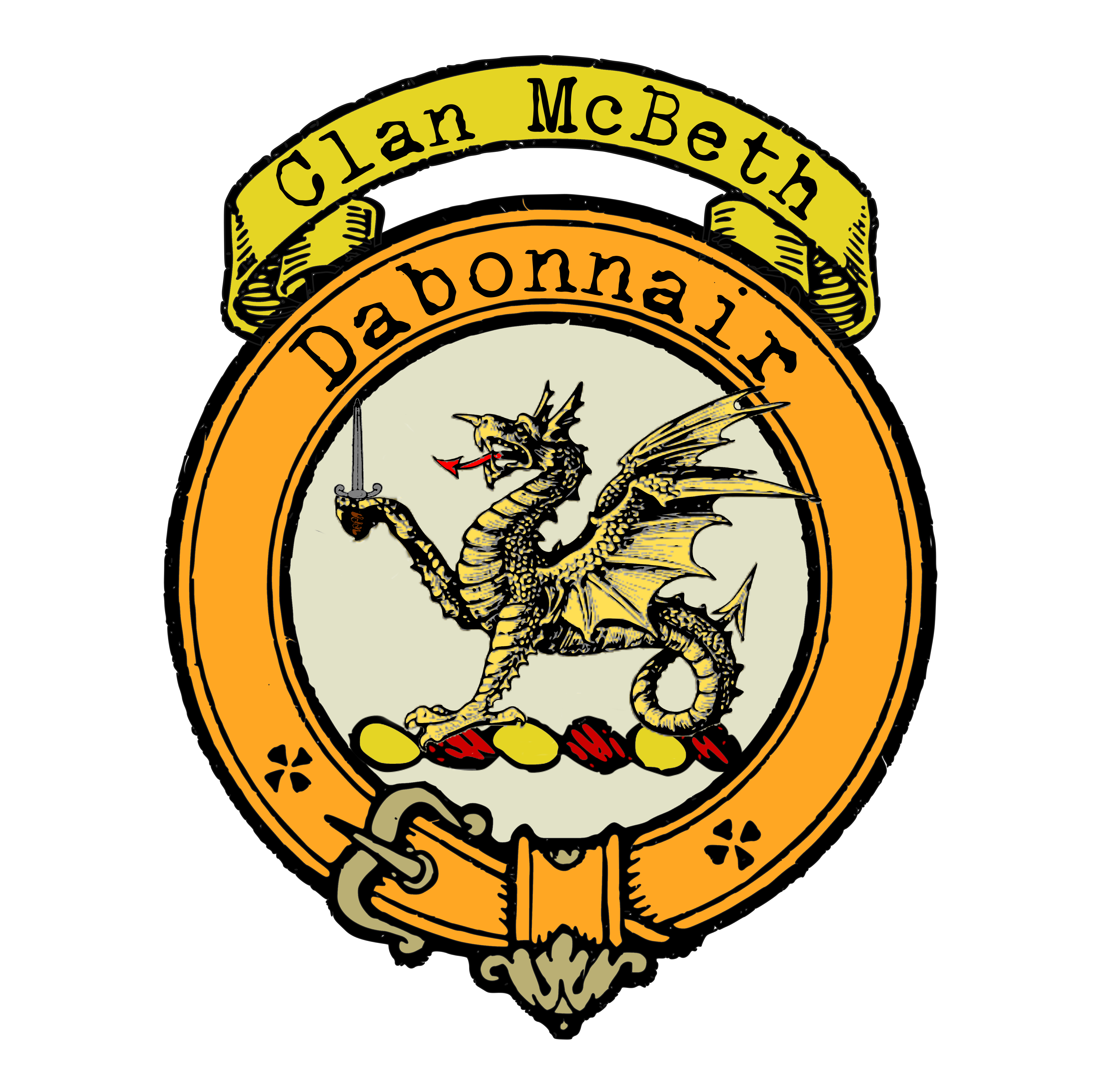Clan McBeth Crest
|
|
CREST: A wyvern holding in the dexter claw a sword in pale proper MOTTO: Dabonnair TRANSLATION: Graceful VARIATIONS: MacBeth |
| The roots of Clan McBeth can be traced back to the ancient Mormaers (Earls) of Moray, a region in northern Scotland. McBeth, also spelled Macbeatha or Maccbethad, was a personal name rather than a patronymic. The name carried connotations of religious devotion, suggesting that early bearers may have been associated with religious life or considered among the chosen few.The pivotal figure of Clan McBeth is undoubtedly Macbeth, who became the king of Scots in 1040 after a fateful encounter with Duncan I, the previous monarch. While history is often overshadowed by Shakespeare’s portrayal of Macbeth as a ruthless regicide, historical records indicate a more nuanced ruler. | |
 |
|
| Purchase @ Redbubble Purchase @ Amazon.com Purchase @ Amazon.co.uk |
|
| The pivotal figure of Clan McBeth is undoubtedly Macbeth, who became the king of Scots in 1040 after a fateful encounter with Duncan I, the previous monarch. While history is often overshadowed by Shakespeare’s portrayal of Macbeth as a ruthless regicide, historical records indicate a more nuanced ruler.Contrary to popular belief, Macbeth seems to have been a wise and successful monarch who ruled Scotland for seventeen prosperous years. He demonstrated a keen interest in the welfare of his people, particularly the poor, and was a notable benefactor of the Church. Macbeth’s pilgrimage to Rome in 1050, where he generously distributed wealth among the less fortunate, highlights his devotion to religious causes.
Macbeth’s reign faced its downfall in 1057 when he was defeated and killed by Malcolm, Duncan’s elder son. This marked the restoration of Malcolm’s family to the throne. Despite his defeat, Macbeth’s impact on Scottish history should not be underestimated. Macbeth’s reign left an indelible mark on the political landscape of Scotland. He introduced administrative reforms and ushered in a period of relative stability. While his methods of seizing power were questionable, it is essential to recognize that his rule was not devoid of positive contributions. The complex and dramatic history of Macbeth’s reign captured the imagination of countless storytellers, including the renowned playwright William Shakespeare. Shakespeare’s play, “Macbeth,” loosely based on historical events, cemented the name Macbeth in popular culture and perpetuated the perception of a power-hungry and tyrannical ruler. |
|
Citations:
|
|
